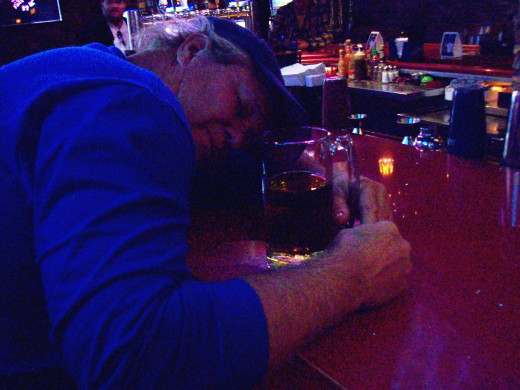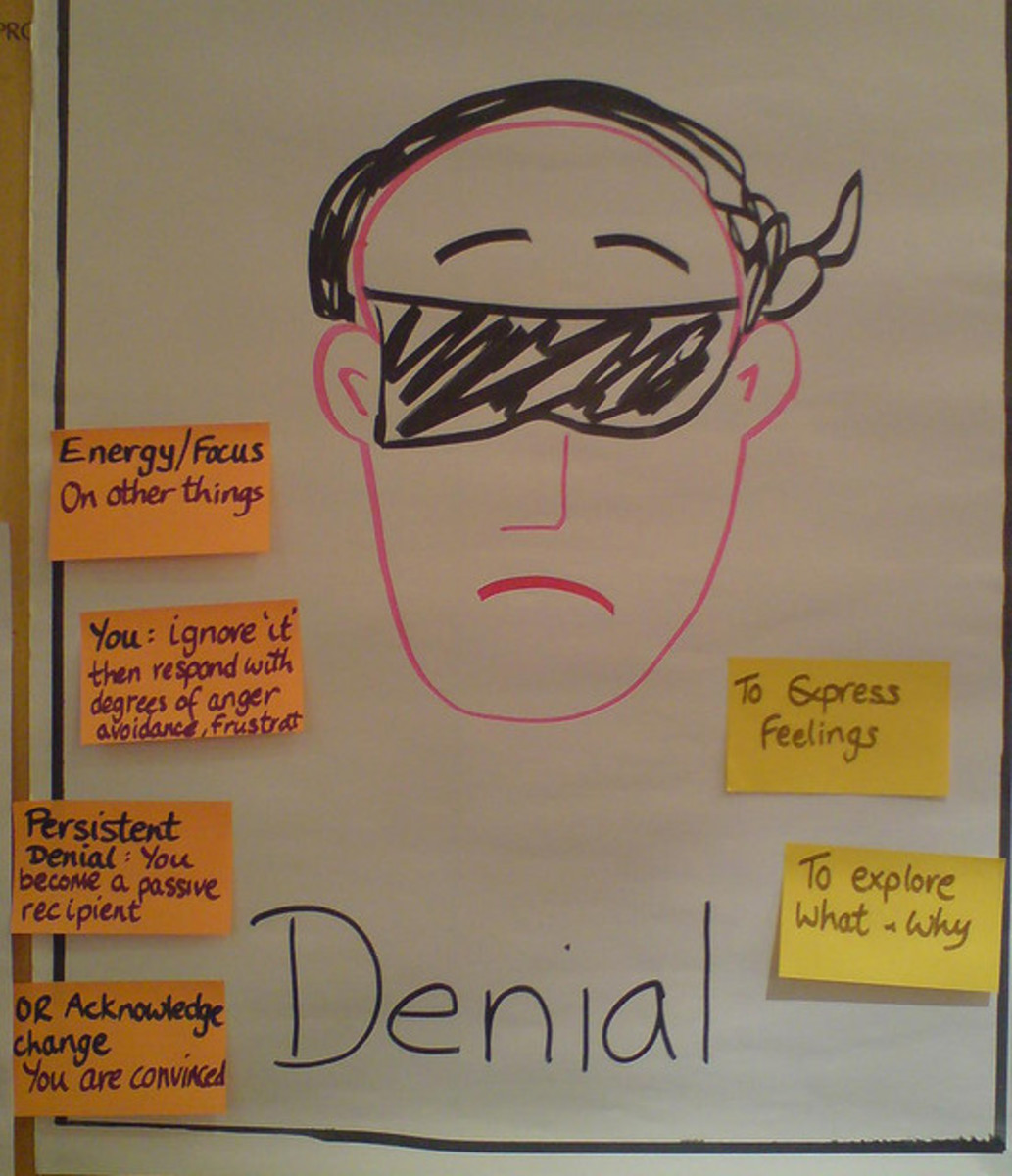How to Deal With a Person Who Has a Drugs or Drinking Problem

Dealing with a person who has a drug or alcohol problem can be both exhausting and challenging. Although the affected person may promise to stop feeding their addiction, they may disappoint you over and over, making it difficult for you to trust or believe them. Unfortunately, people with addictions are consumed by them and their brain is altered by the use of the substance. Making good decisions while in the midst of an addiction is nearly impossible. Only when the person abstains from the drug or alcohol can they begin to think clearly and rationally.
You can't Reason with a Person Under the Influence
When you find your loved one is inebriated, your first instinct maybe to tell them how much they've let you down, explain how angry you are at their actions, or threaten to leave them or ask them to move out. It is very important for you to remember that you cannot expect a person under the influence of drugs or alcohol to respond rationally in a conversation. Wait until your loved one or friend is sober before discussing the incident and how it has affected you. It is also necessary for you to remain safe, and if you anger a person who is drunk or high, they just might retaliate with violence. Stay safe, stay calm, and stay healthy.
Don't Enable the Addicted Person in Your Life
An enabler is a person that helps the addict stay sick. The enabler makes excuses to friends and families, calls in sick for the addict, cleans them up when they get sick, or bails them out when they get into legal troubles. The enabler keeps the addicts secrets, and is usually a co-dependent that must keep the relationship between the addict and themselves alive at all costs. An enabler believes that the relationship is more important than they are, and if the relationship ends, they will be abandoned and alone. Parents may cover for a child's behavior, because they may believe the child's reputation, and how it reflects socially on the family, may be more important than helping the child with a successful recovery.
How to have an Intervention
When you have exhausted all avenues to help the person you love find sobriety, a well thought out and planned intervention can help turn people around and propel them to get help. Always plan who will be there, and encourage friends and family in attendance to write about how they have been negatively affected or hurt by the loved one's substance abuse behaviors. Show them you love them, but tell them you can't witness their destruction any longer.
- Manage emotions and keep the tone of the intervention serious and honest
- Incorporate the help of the mental health community, physician, clergy member, or therapist for the best strategies
- Have at least two friends or family members, besides yourself, present at the intervention
- The intervention should always be a surprise, so never tell the addict what you are planning
- The plan is to bombard the addict with examples of how they have hurt their family and loved ones
- The ultimatum should include the severing of all ties to the addicted family member unless they go into therapy, rehabilitation, or enter a 12 step program of some kind to get help
If the person with substance abuse issues refuses to comply with your ultimatum for getting help, they must:
- Place their keys on the table and leave and not return
- Are outcasted by the family due to the pain and suffering they have caused
- Family members can no longer bear to watch their loved one destroy themselves with drugs and alcohol
- Custody of their children may be taken away by other family members or the state
- They can only return to visit if they are clean and sober, perhaps for a specified period of time
Tough Love is Tough on All Concerned
If you have come to the end of your rope, and your loved one has not taken steps to end their addiction and resolve their behavior, you may have to face the prospect of demanding a change of behavior. The hardest part of an addict's journey is the acceptance of a problem and asking for help. If your spouse, child, or parent has not accepted the help available for them to restore their health and trust in the family, you may have to separate from them.
- You have pleaded and made threats
- Your other family members or children are suffering from the addict's behavior
- You have tried everything you know and your loved one continues to destroy their life
- You have spent considerable time, resources, and money on your loved one with no improvement or results
Known as "Tough Love," the family member must give an ultimatum to their addicted loved one and stand by their decision firmly, and without giving in. The affected person may "push buttons" and cause guilt trips but you must hold on to your resolve. The addict must know that you mean what you say, and you say what you mean. If they refuse to leave their addiction, they must not come to your home. Some conditions you may require may be:
- Enrollment in an Addiction Rehab Facility
- Attending AA or NA meetings for addictions
- Taking away their car keys until they are clean and sober
- Staying away from people who are bad influences and are in the drug/drinking culture
- Attending school on a daily basis
- Removing a child from the parents' custody and given a legal guardian by the court
- Locking out an adult child that breaks curfew or comes home under the influence
Support Groups Provide Help and Information
Support Group
| Those Who Benefit
| Contact
|
|---|---|---|
AL-ANON
| Family Groups that Deal with a Family Members Substance Abuse
| http://al-anon.alateen.org/home
|
AL-ATEEN
| A Teen support group that helps them deal with family members who are addicted
| http://al-anon.alateen.org/home
|
Alcoholics Anonymous
| People who want to stop abusing alcohol
| http://www.aa.org/?Media=PlayFlash
|
Narcotics Anonymous
| People who want to stop drug addiction and abuse
| http://www.na.org/
|
Co-Dependents Anonymous
| People who want to have a healthy relationship
| http://www.coda.org/
|
Meetings can be found on websites near you. Remember, you are not alone.
Accept the Things You Cannot Change
You cannot make anyone go into therapy, stay in therapy, or hold their hand through the entire process of recovery. It is not fair for you to have to watch the destruction of your loved one, or endure the pain and suffering of worrying about a person who is addicted. All family members suffer from the horrible effects of addiction, and if a person refuses help and support, it is not fair to enable them to destroy the lives of others. It is a heart wrenching site to see your loved one slowy killing their health, future, and mental health. But, you must stand your ground. You cannot allow them to return to your home if they do not comply with the your rules or the requests formed in an intervention. The only true influence you have on your loved one's substance abuse is to deny them access to your shelter, money, and acceptance.








